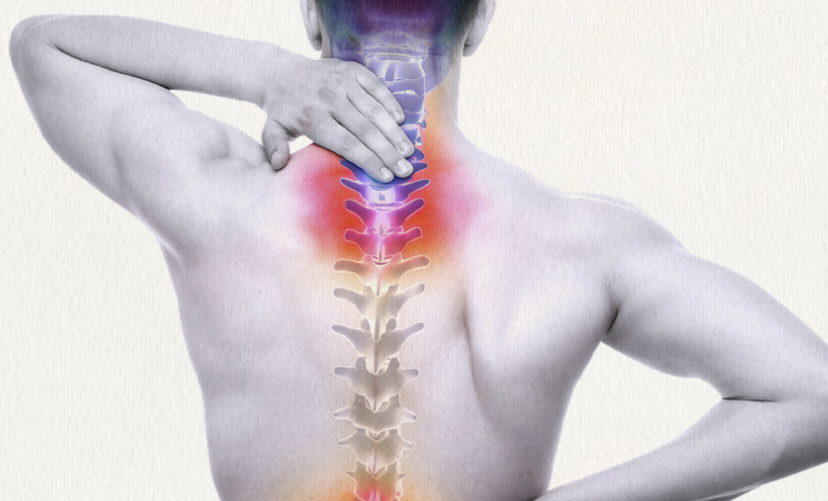Disc replacement surgery is a transformative medical procedure designed to treat debilitating back pain caused by damaged or degenerated spinal discs. By replacing the affected disc with an artificial one, this surgery restores spinal stability and improves mobility, offering patients a chance to regain their quality of life. This comprehensive guide will help you understand everything about disc replacement surgery, from its purpose and types to recovery and benefits.
Why Consider Disc Replacement Surgery?
Disc replacement surgery is typically recommended for patients experiencing severe back pain or mobility issues due to a damaged spinal disc. Here’s why this procedure may be necessary:
- Chronic Pain: Persistent pain that does not respond to other treatments.
- Mobility Issues: Limited range of motion and flexibility in the spine.
- Failed Non-Surgical Treatments: When physical therapy, medications, and other interventions are ineffective.
- Degenerative Disc Disease: Advanced disc degeneration causing nerve compression and severe discomfort.
Types of Disc Replacement Surgery
Depending on the location of the damaged disc, there are two main types of disc replacement surgery:
Lumbar Disc Replacement
- Location: Lower back.
- Purpose: Replaces a damaged disc in the lumbar region to relieve pain and improve mobility.
- Common Uses: For patients with lower back pain caused by degenerative disc disease.
Cervical Disc Replacement
- Location: Neck region.
- Purpose: Treats issues in the cervical spine, alleviating neck pain and nerve compression.
- Common Uses: For conditions like herniated discs or spinal stenosis.

CONSULT DR.VIDYASAGAR HOSPITAL KADAPA TODAY FOR BEST DISC REPLACEMENT SURGERY
How Disc Replacement Surgery Works
Disc replacement surgery involves the removal of the damaged disc and its replacement with an artificial one. The procedure includes the following steps:
Pre-Surgical Preparation
- Diagnostic Tests: MRI and X-rays to assess the condition of the spine.
- Medical History Review: Evaluating any underlying health conditions.
- Pre-Operative Instructions: Guidelines on fasting and medications.
Surgical Procedure
- Incision: A small incision is made to access the damaged disc.
- Removal: The damaged disc is carefully extracted.
- Insertion of Artificial Disc: An artificial disc made of metal or polymer is implanted.
- Closure: The incision is sutured, and the area is bandaged.
Post-Surgical Care
- Monitoring: Initial observation to ensure there are no complications.
- Pain Management: Use of medications to control discomfort.
- Rehabilitation: A structured physical therapy program for recovery.
Benefits of Disc Replacement Surgery
Disc replacement surgery offers numerous benefits, making it a preferred choice for treating certain spinal conditions:
- Pain Relief: Significant reduction in chronic back or neck pain.
- Improved Mobility: Restores flexibility and range of motion in the spine.
- Quick Recovery: Faster recovery compared to spinal fusion surgeries.
- Preservation of Adjacent Discs: Minimizes stress on nearby spinal discs.
- Enhanced Quality of Life: Enables patients to resume normal activities.
Risks and Considerations
While disc replacement surgery is generally safe, it is essential to be aware of potential risks and factors to consider:
Potential Risks
- Infection: Though rare, infections can occur post-surgery.
- Implant Issues: Possibility of implant displacement or wear over time.
- Nerve Damage: Minimal risk of nerve injury during surgery.
Considerations
- Eligibility: Not all patients are suitable candidates; consultation with a specialist is crucial.
- Recovery Period: Patience and adherence to rehabilitation protocols are essential.
- Cost: Evaluate insurance coverage and overall expenses.
Recovery Process After Disc Replacement Surgery
The recovery process for disc replacement surgery varies depending on individual health and the complexity of the procedure. Here’s what to expect:
Immediate Post-Surgery Phase
- Hospital Stay: Typically 1-3 days for monitoring.
- Pain Management: Medications to control post-operative discomfort.
- Mobility Support: Assistance with walking and sitting.
First Few Weeks
- Physical Therapy: Gradual introduction of exercises to regain strength.
- Activity Restrictions: Avoid heavy lifting and strenuous activities.
- Regular Follow-Ups: Monitoring progress with your surgeon.
Long-Term Recovery
- Strengthening Exercises: Focused therapy to improve spinal stability.
- Lifestyle Adjustments: Maintaining a healthy weight and proper posture.
- Resuming Activities: Gradual return to work and daily routines.
Tips for a Successful Recovery
To maximize the benefits of disc replacement surgery, follow these recovery tips:
- Follow Medical Advice: Adhere to your surgeon’s instructions and therapy schedules.
- Stay Active: Engage in recommended low-impact exercises.
- Avoid Smoking: Smoking can delay healing and affect spinal health.
- Monitor Progress: Report any unusual symptoms to your doctor immediately.
- Maintain a Healthy Diet: Proper nutrition aids in faster recovery.
Why Choose Vidyasagar Hospital for Disc Replacement Surgery?
Located in Kadapa, Andhra Pradesh, Vidyasagar Hospital is renowned for providing the best disc replacement surgery in the region. Here’s why patients trust Vidyasagar Hospital:
- Experienced Surgeons: A team of skilled orthopedic specialists with years of expertise.
- Advanced Technology: State-of-the-art facilities for precise and effective treatment.
- Patient-Centered Care: Compassionate support and personalized treatment plans.
- Seamless Process: End-to-end assistance, from diagnosis to recovery.
Conclusion
Disc replacement surgery is a life-changing procedure for individuals suffering from chronic back or neck pain. By restoring mobility and alleviating discomfort, this surgery empowers patients to lead active and fulfilling lives. If you’re considering disc replacement surgery, consult the experts at Vidyasagar Hospital in Kadapa for world-class care. With cutting-edge technology and a dedicated team, Vidyasagar Hospital is your trusted partner in spinal health.
To learn more, visit Vidyasagar Hospital and take the first step toward a pain-free life today.



Recent Comments